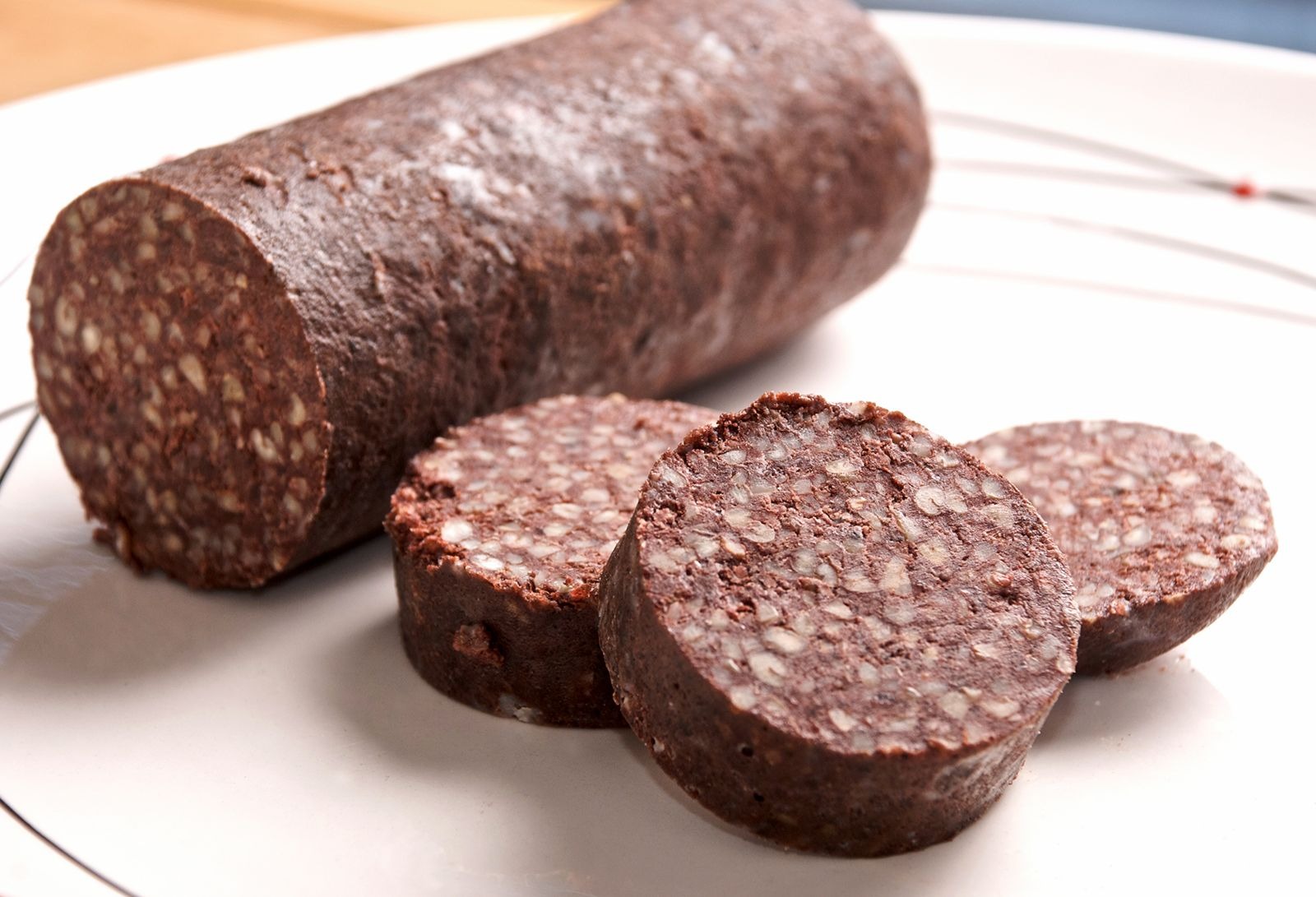HT6. What does Black Pudding Really Come From?
Understanding Black Pudding
As the name suggests, blood is a key component of black pudding. Found worldwide in various forms, it’s essentially a type of blood sausage. While some may find the idea of consuming blood unusual, the process of making black pudding is fascinating and has a rich history.
Typically, pork or cow blood is used to make black pudding. The blood is dried, giving the pudding its distinctive dark color. It’s combined with animal fat and grains such as wheat or barley, which contribute to its texture and flavor. This blend results in black pudding’s rich and spicy taste.
The Flavor Enhancements

The flavor profile of black pudding is enhanced with an array of spices and herbs, including nutmeg, cloves, pennyroyal, and thyme. These ingredients not only provide a pleasant aroma but also add depth and complexity to the pudding’s taste.
The Preparation Process

Once the ingredients are carefully measured and mixed, the sausage is prepared for cooking. Traditionally, black pudding is encased in natural casings made from pig intestines. This method has been used for centuries and might surprise some, but it’s a key part of the art of making black pudding.
Natural casings are not exclusive to black pudding; they’re used for various types of sausages. These casings provide a sturdy yet permeable structure that maintains its shape during cooking, showcasing the practicality of ancient food preparation techniques.
A Historical Perspective

Black pudding’s history is extensive and dates back to ancient times, with evidence of its consumption across different cultures worldwide. It was a practical way to utilize every part of an animal, minimizing waste. Over time, recipes for black pudding evolved to incorporate local ingredients and flavors, resulting in the diverse varieties available today.
Making black pudding involves multiple steps: mixing dried blood, animal fat, grains, and a variety of spices. The use of natural casings adds to the mystique of this traditional treat. While some may find black pudding unusual, its rich history and unique preparation process make it a fascinating dish.
Next time you enjoy a full breakfast with eggs, bacon, and black pudding, you’ll have a deeper appreciation for this unique and flavorful sausage! 














